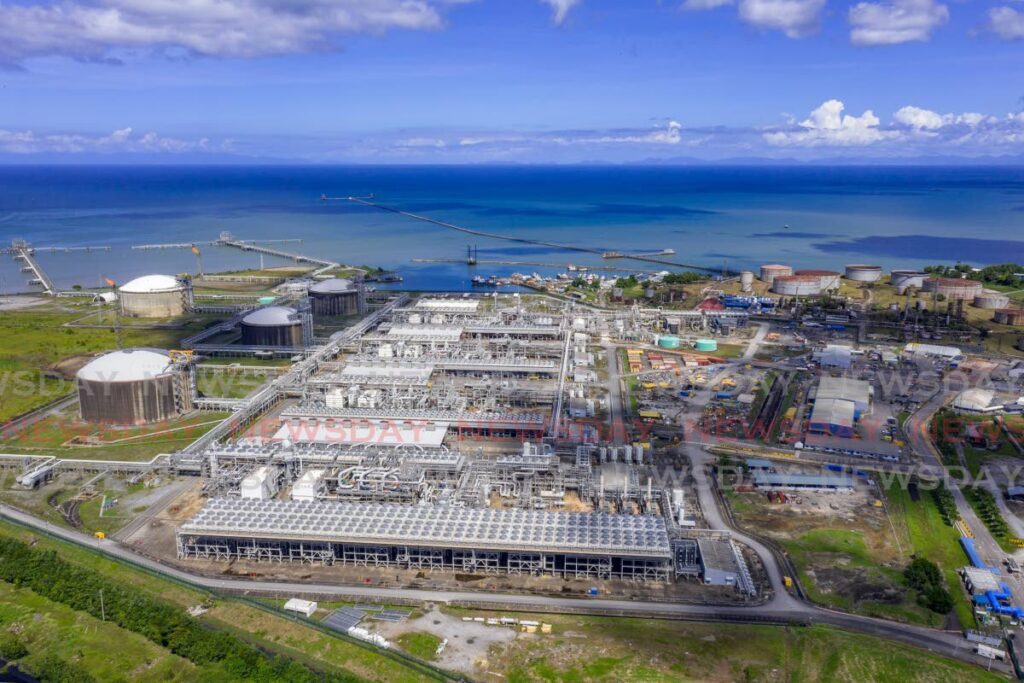Experts make the case for AI in energy industry

Artificial intelligence is everywhere.
It is in your phones, the video games you play, your search engines, and everywhere else in the digital world, in one way or another.
The oil and gas industry is no different. DNV, an independent expert in assurance and risk management that provides certification and technical advisory services to the energy industry, said nearly half of the oil and gas companies it surveyed in 2024, would use AI in their operations.
Market research company Mordor Intelligence estimated global demand for AI applications in oil and gas value chains would go from US$3 billion in 2024 to US$5.2 billion in 2029.
Among the many topics looked at during the February 10-12 energy conference, Hyatt Regency, Port of Spain, experts considered the possibilities for AI in the industry. Dr Jose Celaya, principal scientist and manager of Intelligence Systems Lab presented on the ways to optimise performance in the operating systems of the oil and gas sector, making it more efficient.
CEO of the Center for Energy Resources and Digitalisation Technologies (CERDiT) Stanley Rich Wharton said it could mean even more than that to the industry. With TT being a 100-year-old oil and gas province seeking to optimise its resources, looking deeper into its borders and beyond for deepwater oil and gas, AI can open the doors to greater exploration, better processes and safer operations.

Celaya showed a video in which an AI assistant, with an understanding of the oil and gas sector, is asked to find wells in a particular region.
In the video, the user asked about data available in a certain field. The digital assistant brought up a map with a few wells and records of a well bore, as well as legal agreements, well logs and a few markers.
The user asked the assistant to pull some of the data from one report and cross-reference it with the map.
“Look at those datasets,” he said, pointing to the screen. “And now, it's doing some geologist stuff that I don’t understand.”
The assistant finally did an interpretation of the wells in the area based on the questions asked by the user and the data it had access to.
"Now, this system is not a computer, this is an energy large language model (LLM) system that we have. This system understands the domain, understands if you say well, it's not about ‘feeling well,’ it's actually ‘well,'" Celaya said.
“It understands the kind of data that we use in the reports that we use, it is contextualised with the main data, and it is connected to a data ecosystem.”
Celaya said AI systems have the ability to optimise several aspects of the oil and gas sector, but the sector can also benefit from their ability to apply knowledge, run algorithms and do high-speed computing.
“We use the domain knowledge and create a model that has a good approximation to compute benefits.”
He added that in the case of logistics, processing and management AI can also give companies an edge by giving employees better insight of operating systems and the issues they may have.
“With AI, we are able to predict better,” he said.
He said using AI’s processing ability companies would not only be able to look at what could go wrong, but when it can go wrong. Celaya wasn’t the only one with an example of the benefits of using AI in the energy industry. Ramps Logistics won the Energy Chamber’s innovation in technology challenge for the development of a generative AI solution for customs brokerage, called Mawi.
CEO Shaun Rampersad explained to Business Day that Mawi extracts large sets of data and makes complicated decisions and classifications of goods to streamline the customs process.
“In TT, what our customs professionals do is they classify goods according to the harmonised tariffs to determine what licences and duties are required. What Mawi does, you can take one invoice with 100 items and it extracts every item, runs automated Google searches in the background in milliseconds, looks at the entire global database of that exists from those products, classifies it according to the correct codes and duty rates, and puts it all together to submit to the Asycuda system.
“Things that used to take ten hours with errors are now being done in seconds. It is the power of AI.”
Wharton explained that companies such as bp, Shell and Exxon have used AI in various aspects of their business.
“International energy companies would operate with proprietary AI systems geared to specific parts of their production operations to increase efficiencies,” he said.
He said as international energy companies are spread around the world, learnings from one business unit overseas could be translated to others if it would have a positive effect.

“Take bpTT for example, AI models can be built using the large volumes of data, and experiences, from decades of drilling and production of oil and gas in the Columbus Basin. The same applies to Shell and Exxon who both command vast operations across the globe.
“Exxon, the largest IOC in the world, has that competitive advantage, hence they could leverage their experiences and their AI models in subsurface exploration and production in places like Guyana.”
Wharton, in an interview with Business Day, said, in general, oil and gas companies use AI for increasing efficiency, boosting growth in production and to grow profitability.
But, for TT, Wharton believes that AI would be of greater benefit in the exploration part of the value chain. He said TT’s experience should provide an abundance of data that could be utilised for developing AI models.
“Areas within the exploration phase need to be identified for improving efficiencies and increasing the chances of success in finding new resources. With ageing infrastructure, including pipelines and plants, the application of AI could help in improving efficiencies in oil and gas production by managing maintenance schedules, identifying leakages, and for plants, emissions such as methane.”
The benefits of AI in deepwater exploration may be in the acquisition, processing and interpretation phases of seismic data, Wharton told Business Day.
“Seismic service companies would apply AI for acquisition and processing of large volumes of data, utilising their large databases from around the world to improve their efficiencies and quality of product,” he said.
He noted that human involvement would still be necessary, particularly through interpretation of the seismic data.
Wharton added that while it could be a large field, AI can also be used to enhance occupational safety and health (OSH) best practices and standards.
He said AI technologies can be linked with machine learning algorithms and predictive analytics to identify activities that deviate from OSH standards.
“This would require monitoring and analysis of real-time data to identify potential hazards that could lead to an accident in a plant. AI algorithms may be linked to sensors in a plant to identify potential hazards and for predictive maintenance. AI may also be linked to virtual reality and augmented reality technologies for real-world immersive training scenarios.”
Corrective action to stop accidents before they happen could be an outcome of the use of AI in OSH practices, he said.

Comments
"Experts make the case for AI in energy industry"